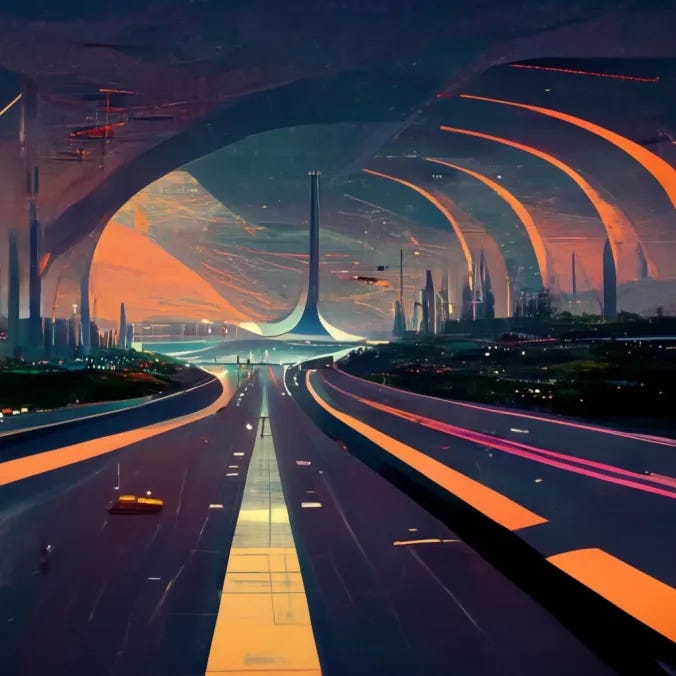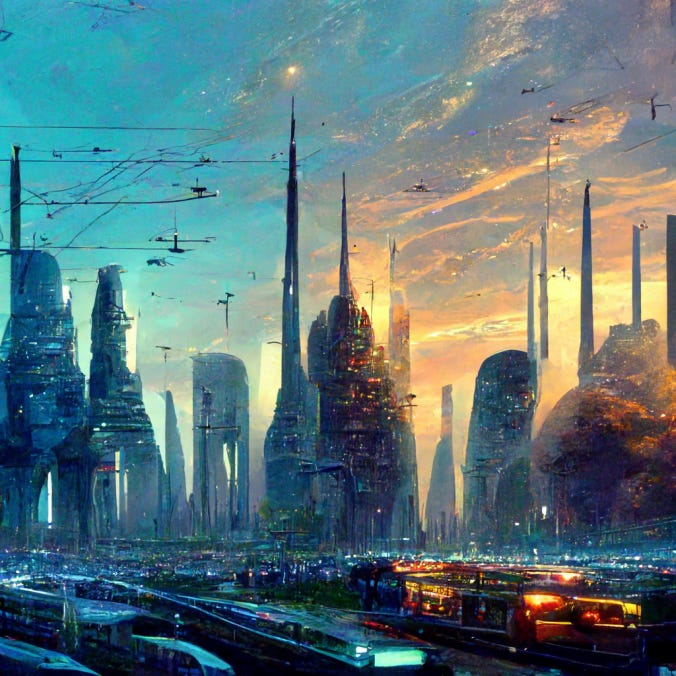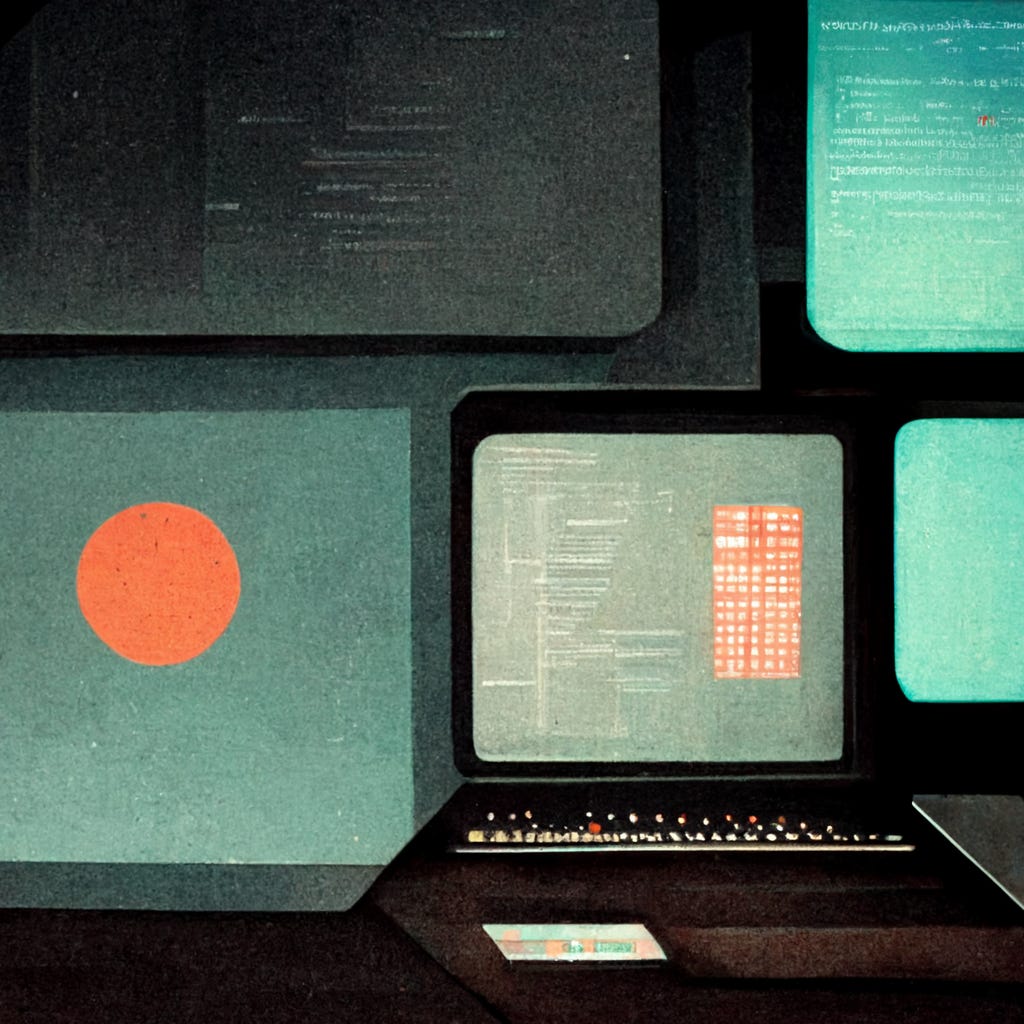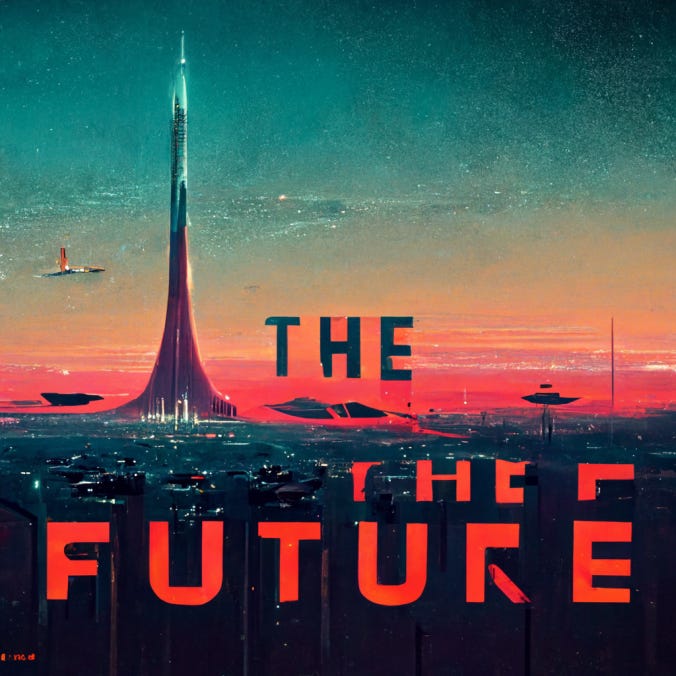You know, I’m super optimistic about the future.
Aptera motors will release the first super aerodynamic electric cars this year, that can go up to a 1000 miles on a single charge and recharge from the sun, and are simpler and cheaper than most existing cars to boot. They have more than 30000 orders, and working models. They represent a view of the future that’s more efficient, and cheaper. There’s no reason to have 2 ton metal monstrosities barging around on the interstates, when you could have better and faster for cheaper and lighter, taking the car back to Ford’s original vision - a car for every man, a car as cheap and efficient and simple as you could make it. In 2084, all cars will look like they do.
Stable Diffusion brought AI art to the masses, and the sheer amount of tools that use it after only a few months out is absolutely mindboggling, and the art is getting almost too good to be true. Same with GPT-3, and other large transformer models, they’re rapidly approaching human level skill. GPT-3 has about 175 billion parameters, and it already writes pretty much on the level of most humans. The human brain only has about 3 trillion parameters - only about 300 times more, which sounds like a lot but easily within the reach of the global semiconductor industry. Currently, it acts and feels a lot like a idiot-savant, a small facsimile of the human brain, a single system stripped of the context surrounding it. It also raises interesting questions about what cognition and even writing is. Are our brains merely models continually being optimized? Are they a single system or a collection of systems tied together? Does GPT-3 not show that writing and creativity isn’t necessarily a function of the soul, but of the mind?
But beyond the specific philosophical questions, which are of the type Macaulay condemned as being unable to answer, and therefore only liable to lead one into a mental garden of thistles and no fruit, I think the most probable outcome of these models is that they will do to the brains what machines did to the body - amplify it, strengthen it, so that one could do the work of 10. All these models still require guidance, but their speed and output is so prodigious that they could easily amplify the work of one person to replicate that of an entire team. We could finally see the industrial principle being applied to the last holdout, the creative industry, and in the spirit of Ford, make it so that everyone can be creative - that now you will not be held back by the tyranny of talent, and dwarves will be able to achieve the accomplishments of giants. Just like how factories were attacked at first, and then came to be everywhere, the revolution is not stoppable. The ideas are out there, publicly available, and will be applied on a larger and larger scale. In 2084, we could see massive software projects being rolled out on a daily basis covering more and more aspects of life, software projects written by computers under the guidence of a human, software projects which could potentially be so complicated that they could never be written by a human. The whole world of the internet and information technology in general could start to be mass produced.
And it will be awesome. Does any software developer really love debugging? Do artists really love the tedious boredom that comes with careful crafting? These tools abstract away the worst bits of craft, and let the artist or developer focus on the more interesting high level parts. I think this generation will rebel, but in 20 years the idea of debugging manually will be regarded as developing with punch cards is regarded now.
In addition, I think that more and more software will be replaced with general purpose software. Why have an static webpage when you could have an utterly dynamic one that changes second by second according to the user and the time of day, the circumstances and the specific requirements, a website hallucinated into being by stable diffusion working in conjunction with other models?
My area of research is in AI accelerators, a field that has seen massive growth recently. They’re getting better and faster every month, and they’re also getting more and more efficient. My dream is to figure out how to build a $25 chip to run these massive models efficiently, and I think that with every article released, the dream is getting closer and closer. In 2084, every phone will have a chip like that, maybe even smarter. Your phone will finally be smarter than you are, and it’ll be great.
I think there’s no reason to be afraid of the future. The future will come no matter what, as with 8 billion people on this spinning blue ball, there is no way to stop progress. And so all you can do, and all you should do, is think about all the possible ways that your life could be improved by the technology coming out today, because it is revolutionary.
This series of articles beyond this first more philosophical one will look at a series of technologies that will define the future, trying to understand what they do, and how they work, and what they mean. It’ll try to demystify these technologies so that we can understand the future.









